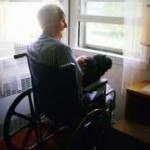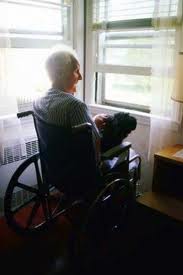Alzheimer’s disease typically develops slowly and gradually gets worse over the course of several years. As it progresses it eventually affects most areas of your brain, including those important in memory, thinking, judgment, language, problem solving, personality and movement.
 Doctors divide this progression into Alzheimer’s stages to help you and your family understand what to expect and plan for the future. It’s important to realize that Alzheimer’s stages are rough guides based on averages and generalizations. The disease is a continuous process. Your experience with Alzheimer’s, the symptoms you develop and when they appear may vary.
Doctors divide this progression into Alzheimer’s stages to help you and your family understand what to expect and plan for the future. It’s important to realize that Alzheimer’s stages are rough guides based on averages and generalizations. The disease is a continuous process. Your experience with Alzheimer’s, the symptoms you develop and when they appear may vary.
Keeping in mind that everyone’s different, it’s helpful to think about three Alzheimer’s stages — mild, moderate and severe.
Mild Alzheimer’s disease
Alzheimer’s disease is often first diagnosed in the mild, or early, stage, when it becomes clear to family and doctors that a person is having significant trouble with memory and thinking.
In the mild Alzheimer’s stage, people may experience:
- Memory loss for recent events. Individuals may have an especially hard time remembering newly learned information and repeatedly ask the same question.
- Difficulty with problem solving, complex tasks and sound judgments. Planning a family event or balancing a checkbook may become overwhelming. Many people experience lapses in judgment, such as when making financial decisions.
- Changes in personality. People may become subdued or withdrawn — especially in socially challenging situations — or show uncharacteristic irritability or anger. Decreased attention span and reduced motivation to complete tasks also are common.
- Difficulty organizing and expressing thoughts. Finding the right words to describe objects or clearly express ideas becomes increasingly challenging.
- Getting lost or misplacing belongings. Individuals have increasing trouble finding their way around, even in familiar places. It’s also common to lose or misplace things, including valuable items.
Moderate Alzheimer’s disease
 During the moderate, or middle, Alzheimer’s stage, people grow more confused and forgetful and begin to need help with daily activities and self-care.
During the moderate, or middle, Alzheimer’s stage, people grow more confused and forgetful and begin to need help with daily activities and self-care.
People with moderate Alzheimer’s disease may:
- Show increasingly poor judgment and deepening confusion. Individuals lose track of where they are, the day of the week or the season. They often lose the ability to recognize their own belongings and may inadvertently take things that don’t belong to them.
They may confuse family members or close friends with one another, or mistake strangers for family. They often wander, possibly in search of surroundings that feel more familiar and “right.” These difficulties make it unsafe to leave those in the moderate Alzheimer’s stage on their own.
- Experience even greater memory loss. People may forget details of their personal history, such as their address or phone number, or where they attended school. They repeat favorite stories or make up stories to fill gaps in memory.
- Need help with some daily activities. Assistance may be required with choosing proper clothing for the occasion or the weather and with bathing, grooming, using the bathroom and other self-care. Some individuals occasionally lose control of their urine or bowel movements.
- Undergo significant changes in personality and behavior. It’s not unusual for people with moderate Alzheimer’s to develop unfounded suspicions — for example, to become convinced that friends, family or professional caregivers are stealing from them, or that a spouse is having an affair. Others may see or hear things that aren’t really there. Individuals often grow restless or agitated, especially late in the day. People may have outbursts of accusing, threatening or cursing. Others may bite, kick, scream or attempt inappropriate sexual activity.
Severe Alzheimer’s disease
 In the severe, or late, stage of Alzheimer’s, mental function continues to decline and the disease has a growing impact on movement and physical capabilities.
In the severe, or late, stage of Alzheimer’s, mental function continues to decline and the disease has a growing impact on movement and physical capabilities.
In severe Alzheimer’s, people generally:
- Lose the ability to communicate coherently. An individual can no longer converse or speak coherently, although he or she may occasionally say words or phrases.
- Require daily assistance with personal care. This includes total assistance with eating, dressing, using the bathroom and all other daily self-care tasks.
- Experience a decline in physical abilities. A person may become unable to walk without assistance, then unable to sit or hold up his or her head without support. Muscles may become rigid and reflexes abnormal. Eventually, a person loses the ability to swallow and to control bladder and bowel functions.
Rate of progression through Alzheimer’s stages
The rate of progression for Alzheimer’s disease varies widely. Alzheimer’s tends to progress more slowly in those who are diagnosed at a younger age and in those who don’t have other serious health issues.
On average, people with Alzheimer’s disease live four to six years after diagnosis, but some survive as long as 20 years. Pneumonia is a common cause of death because impaired swallowing allows food or beverages to enter the lungs, where they can cause an infection. Other common causes of death include complications from urinary tract infections and falls.
